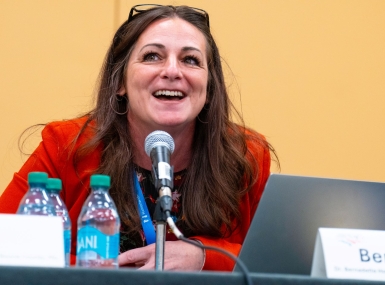HHS proposes rule to extend mental health parity to Medicaid, CHIP programs
The U.S. Department of Healt h and Human Services (HHS) an nounced a proposed rule, April 6, to apply the Mental Health Parity and Addiction Equity Act of 2008 to Medicaid and the Children's Health Insurance Program (CHIP).
The federal law was meant to ensure that cover age for mental health and substance abuse treatment was on par with medical and surgical care. Up until now, the government has only spelled out how the law applied to commercial plans.
The rule would affect the ma jority of the 70 million people on Medicaid who are in managed care plans and the 8 million children covered by CHIP.
The proposal would mean that plans no longer could have hard limits on coverage such as a certain number of mental health visits in a year. And if a patient were to be denied treatment for a mental health or substance use disorder, the insurer would have to explain why.
Stating "the new rule does not disappoint," Ron Manderscheid, executive director of the National Association of County Behavioral Health and Developmental Disabil ity Directors, explained, "we have been waiting for this rule ever since the original rule for large-group private insurance programs was released early in 2010. Both rules proceed from the Paul Wellstone and Pete Domenici Mental Health Parity and Addiction Equity Act passed in 2008, after being championed by then-Rep. Patrick Kennedy (D-R.I.) and his father, Sen. Ted Kennedy (D-Mass.)."
Counties are the local safety net and play an integral role in providing services for 296 million residents and health coverage to more than 3.3 million county employees and their dependents.
Counties in 26 states serve as the local behavioral health authority. Through counties' roles as employ ers and providers of behavioral health services, parity helps ensure Americans with mental illness and substance abuse conditions gain access to appropriate community-based services.
Attachments
Related News

U.S. Department of Agriculture announces reorganization
On July 24, U.S. Secretary of Agriculture Brooke Rollins announced a major reorganization of the U.S. Department of Agriculture (USDA) that will relocate thousands of federal employees, restructure regional offices and consolidate administrative services and operations. The changes are expected to reduce USDA’s footprint in Washington, D.C. and shift more personnel to regional hubs across the country.

County officials shed light on childhood education and care
Inadequate childcare causes American workers to lose between 9 million and 26 million hours of work in any given week and has a negative impact on children’s development.

Counties can help troubled youth thrive
Combatting crime among youth means providing them with enriched education environments and mentorships, access to green spaces and opportunities for social connection and skill strengthening according to Bernadette Hohl, from the Philadelphia Department of Public Health.
